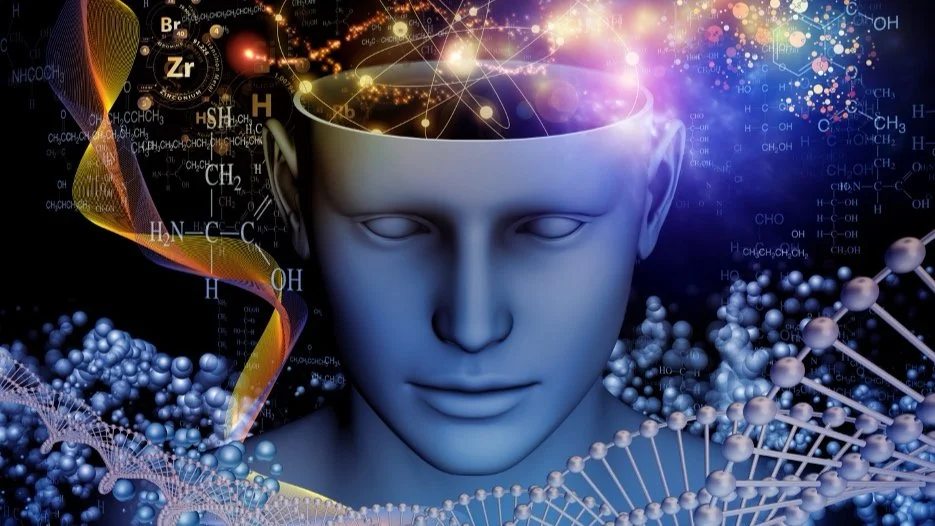The Reasoning Revolution: How the latest wave in AI is reshaping technology and society
By: Anthony Bontrager, Managing Director, WestRiver Group
“We are entering a world where we will learn to coexist with AI, not as its masters, but as its collaborators."
- Mark Zuckerberg, CEO, Meta
For over a decade, "big data" has been the driving force behind technological innovation. Companies built massive data lakes, invested billions in storage infrastructure, and hired armies of data scientists to make sense of the information deluge. The mantra was simple: collect everything, store it all, and find patterns later.
But something remarkable is happening. The latest wave of AI innovations—from Model Context Protocol (MCP) to advanced agentic systems—is ushering in what we might call the "post-big data" era. This doesn't mean data is becoming less important. Quite the opposite. Data is becoming so seamlessly integrated into intelligent systems that the traditional boundaries between collection, processing, and action are dissolving. Organizations are no longer building bigger data warehouses—they're constructing smarter reasoning networks where multiple AI agents collaborate on complex problems.
This represents a leap from reactive data analysis to proactive, distributed intelligence networks. Rather than simply identifying correlations in historical data, these systems engage in genuine reasoning, understanding context and making logical inferences through coordinated multi-agent collaboration.
The Reasoning Revolution: From Individual Tools to Collective Intelligence
What we are witnessing is a fundamental shift in artificial intelligence - from isolated pattern recognition systems to interconnected networks of reasoning agents. This transformation represents the emergence of genuine collective intelligence that understands context, anticipates consequences, and makes logical inferences about future scenarios through coordinated collaboration.
At the heart of this revolution lie standardized communication protocols that function as universal translators for AI systems. The Model Context Protocol (MCP), Agent-to-Agent (A2A), Agent Gateway Protocol (AGP), and Agent Communication Protocol (ACP) create a common language enabling AI agents to communicate, collaborate, and connect with third-party tools seamlessly.
While A2A protocol enables agents to share updates and delegate tasks without overhead, communication alone is insufficient. Agents also need relevant, up-to-date data and the right toolset to make informed decisions and execute actions. The synergy between MCP and A2A creates a reasoning infrastructure that is both universally connected and intelligently collaborative, allowing multiple agents to access, process, and act on information collectively.
These systems operate with near-autonomous decision-making capabilities, continuously learning and adapting while coordinating with other agents to solve complex, multi-faceted problems. They represent a new paradigm where intelligence is distributed across networks rather than contained within individual systems.
So where do we go from here?
The Immediate Future (2025-2027)
We are currently experiencing what economists call a "productivity paradox" - massive AI investment that hasn't yet translated to proportional productivity gains. But nearly all indicators suggest we're on the cusp of breakthrough adoption. Nearly 70% of organizations have already adopted or are investigating AI technologies for data and analytics, creating a foundation for exponential growth.
What I expect we’ll see:
Integration over Innovation: Companies focusing on seamlessly embedding AI into existing workflows rather than building standalone AI products.
Data Democratization: AI making complex analytics accessible to non-technical users across organizations.
Real-time Everything: The shift from batch processing to continuous, real-time intelligence.
The Transformation Phase (2027-2030)
This is where things get interesting. As AI systems become more sophisticated and interconnected, we'll likely see the emergence of what researchers call "ambient intelligence" - AI so seamlessly integrated into our environment that it becomes invisible.
Key developments should include:
Autonomous Business Processes: AI agents managing entire business functions with minimal human oversight.
Predictive Everything: From supply chains to personal health, AI will shift our focus from reactive to predictive decision-making.
The Death of Dashboards: Traditional business intelligence tools will give way to conversational AI that answers questions in natural language.
The Societal Shift (2030 and Beyond)
The longer-term implications extend far beyond technology and into the fabric of society itself. We're not just changing how we work with data—we're changing how we work, period.
As AI takes over routine data analysis and processing tasks, human workers are being pushed up the value chain. The jobs of the future won't be about manipulating data—they'll be about asking the right questions, interpreting AI insights within human context, and making ethical decisions about
This transition isn't without challenges. Current estimates suggest that up to 40% of current analytical roles may be significantly transformed within the next five years. But history shows us that technological revolutions don’t destroy jobs - they simply create different kinds of jobs, and more of them.
With AI systems poised to become more capable and autonomous, questions around privacy, control, and human agency have become paramount. We're moving toward a world where AI agents can access and correlate vast amounts of personal and professional data to make decisions on our behalf. The challenge isn't technical—it's ensuring these systems remain aligned with human values and under meaningful human control.
Perhaps the most profound societal shift is the democratization of analytical capability. Historically, deriving insights from complex data required specialized training and expensive tools. AI is changing that equation. Soon, asking sophisticated questions of complex datasets will be as natural as googling for information today. This democratization has the potential to reduce inequality by giving everyone access to the same analytical superpowers that were once the exclusive domain of large corporations and research institutions.
Conclusion: Evolution, Not Extinction
The Reasoning Revolution isn't ending the age of big data - it's evolving it into something far more powerful. We're moving from a world where humans struggle to extract insights from vast datasets to one where intelligent systems can reason about data in real-time and take action based on that reasoning.
This transformation will be neither instant nor without challenges. But for organizations and individuals who embrace this shift thoughtfully, the potential is extraordinary. We're not just building better tools - we're creating genuinely intelligent systems that can help us understand our world in ways we never thought possible.
The future belongs not to those who collect the most data, but to those who can most effectively combine human wisdom with artificial intelligence to create value in the real world. In this new paradigm, the question isn't how much data you have - it's how intelligently you can reason about the data that matters.
The Reasoning Revolution is already underway. The only question is whether you'll be a passive observer or an active participant in shaping this intelligent future.
#ONWARD

